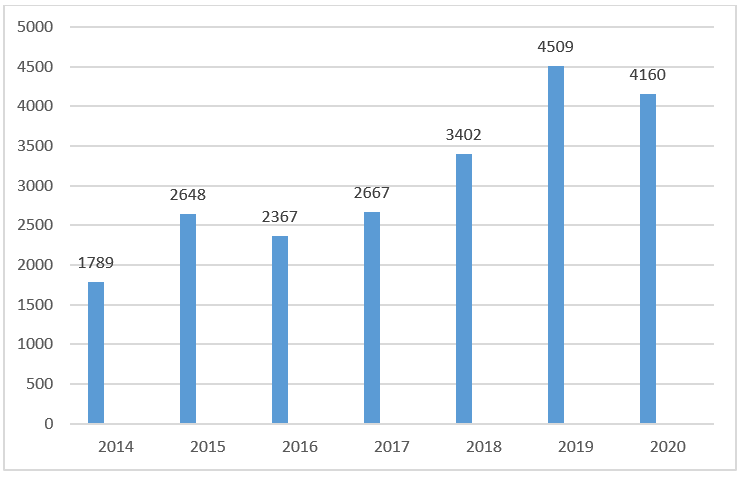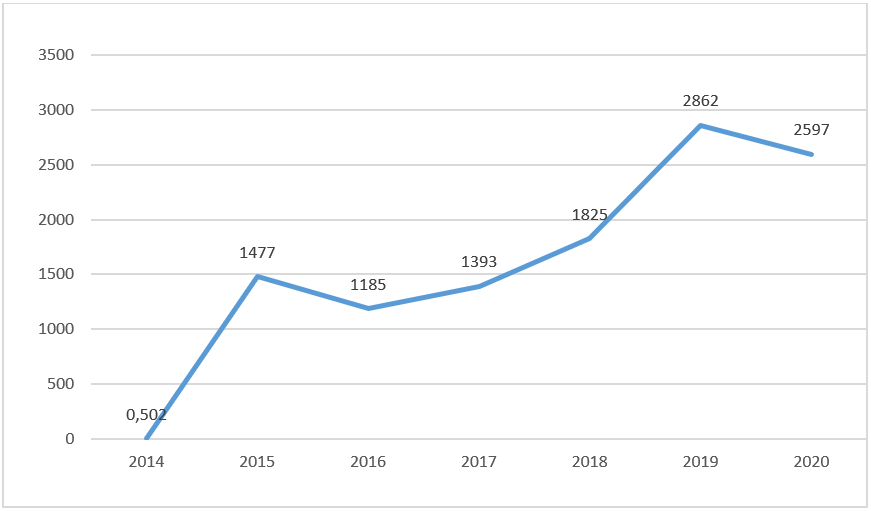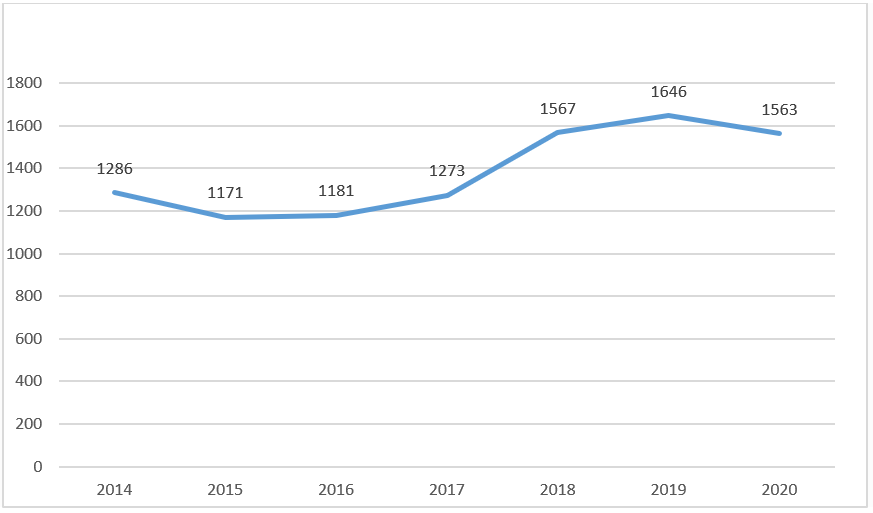
Shusha Declaration: A New Strategic Stage in The Relations Between Azerbaijan and Turkey
Dr. Vugar Bayramov, Member of the Parliament of Azerbaijan
The Shusha Declaration on Allied Relations signed between President of Azerbaijan and President of Turkey is of historical significance for both countries. The document will deepen strategic cooperation between the two countries, as well as expand economic relations.
One of the most specific aspects of the Declaration is to increase efforts to diversify national economies and exports, which means that these countries will support each other in economic and trade diversification. Given the crucial importance of trade diversification for both countries, cooperation in this area is also significant in terms of sustainable economic development.
Another considerable point is to take the essential measures to establish mechanisms for organizing the free movement of goods. The Preferential Trade Agreement between Azerbaijan and Turkey came into force on March 01, 2020. The agreement covers 15 groups of goods. As a result of this agreement, trade turnover between the two brotherly countries is expected to increase, which means that real steps are already taken in this area. The countries have set a goal to increase trade turnover to $ 15 billion over the next three years.
The measures envisaged in the Shusha Declaration will create new opportunities to achieve this goal. It has to be noted that with a trade turnover of $ 4.5 billion, Turkey is Azerbaijan’s largest trading partner after Italy. In 2019, the trade turnover between the two countries was $ 4 billion 509 million. Generally, there has been a growing trend in trade relations between Azerbaijan and Turkey in recent years. Thus, in 2019, trade turnover increased by 33% compared to the previous year and by 73% compared to 2017. Thus, the total trade turnover in 2018 amounted to $ 3 billion 403 million, and in 2017 – $ 2 billion 667 million. Since 2017, Azerbaijan has always had a positive balance in foreign trade with Turkey. In 2019, this balance increased to a record $ 1.2 billion.
Graph 1. Foreign Trade Turnover between Azerbaijan and Turkey since 2014, million USD

Source: State Statistical Committee of Azerbaijan Republic, 2021
The above graph shows that foreign trade turnover between two countries has been dramatically increased since 2016. Both countries has deeper liberalized trade regime in order to increase amount of turnover. This graph shows how economic and trade relations between Azerbaijan and Turkey has improved last decade. Meanwhile both countries intend increase foreign trade turnover upcoming years. Increasing of foreign trade between Azerbaijan and Turkey by 3 times in next 3 year is very motivated and tangible target. In order to achieve this target both countries has already started much deeper liberalization between countries including removing barriers, tariffs and quotes for certain number of goods which has been already on power since March this year. However, increasing number of goods and implementing joint programs and projects are also on the agenda. This perfectly confirm that both countries have clear targets and visions to further improve economic and trade relations between each other.
Graph 2. Export from Azerbaijan to Turkey since 2014, million USD

Source: State Statistical Committee of Azerbaijan Republic, 2021
Turkey has crucial share in Azerbaijani non-oil export. Azerbaijan non-oil export increased by $184 million or 25.4 percent during January-May 2021. According to the azexport.az portal, nn May 2021, Azerbaijan’s total exports amounted to $1.6 billion, while exports in the non-oil sector amounted to $210.5 million. Non-oil exports increased by $38 million or 22 percent compared to the May of 2020. In addition, food exports in the non-oil sector amounted to $85.4 million and non-food exports to $125.1 million.
Turkey has the top second place in the Azerbaijani non-oil export. During the reported period, non-oil goods worth $279.5 million were exported to Russia, $255 million to Turkey, $91.1 million to Switzerland, $69.1 million to Georgia and $29.5 million to the U.S. The top three countries in terms of non-oil products export in May were Russia with $91 million, Turkey with $38.7 million and Switzerland with $22.9 million. Cotton yarn ranked first in the non-oil sector export in the reported month with $44.7 million, followed by gold with $22.8 million and potatoes with $19.2 million.
Graph 3. Export from Turkey to Azerbaijan since 2014, million USD

Source: State Statistical Committee of Azerbaijan Republic, 2021
Meanwhile, the import turnover from Turkey to Azerbaijan has been also increased due to increasing of strategic relations between two countries.
All above graphs show that even global pandemic situation has slightly impacted on trade relations between two countries. This show what extend the ground of economic ties between Azerbaijan and Turkey is strong.
The Shusha Declaration also envisages the continuation of coordinated efforts for the efficient use and further development of the Southern Gas Corridor. Last year, Turkey received more than 9.58 billion cubic meters of gas from Azerbaijan, which is 27.2% more than in the same period of 2018. This indicates the strengthening of energy cooperation between the two countries.
One of the important directions is the further development of the transit-transport potential of international transport corridors in the Azerbaijani-Turkish parts using the technologies of intelligent transport systems, the opening of the Zangazur corridor connecting Azerbaijan and Turkey, the restoration of transport and communication links in the region. The Zangazur corridor will not only unite the Turkic-speaking countries with a nominal GDP of more than $ 1.1 trillion but also increase the strategic importance of our country. The corridor will connect a region with significant economic potential and natural resources. It will provide Nakhchivan with access to these transport corridors through the main territory of Azerbaijan. In particular, it will be important in terms of providing access for Nakhchivan entrepreneurs to the East-West transport corridor. The corridor will also strengthen Azerbaijan’s relations with its exclave, the Nakhchivan Autonomous Republic and Turkey, and increase the geoeconomic importance of our country. Most importantly, the Turkic world will be reunited through the Zangazur corridor after many years.
Overall, the Shusha Declaration will create new opportunities for economic cooperation by strengthening the strategic partnership between the two brotherly countries.
Another important area of cooperation between Turkey and Azerbaijan is energy cooperation. Given the importance of the Southern Gas Corridor for Europe, especially for Central and Southern Europe, it should be noted that the expansion of this pipeline, which was initially planned to transport up to 18 billion cubic meters of gas, could transport 30 billion cubic meters of gas in the future. The expert said that Shah Deniz-2, South Caucasus Pipeline, and TANAP, from the Southern Gas Corridor projects, will be launched in the second half of this year, and Azerbaijani gas will be transported to Turkey via TANAP. He noted that after the construction of TAP, Azerbaijan’s role in shaping Europe’s energy security will increase.
One of the key elements of the Southern Gas Corridor is the transportation of natural gas to Turkey. In particular, there is an increase in the volume of blue gas to be transported to Turkey via TANAP, and this increase will continue in the future. At the same time, support for the strengthening of Nakhchivan’s gas supply to Turkey is one of the priority issues in Turkish-Azerbaijani cooperation today. In this regard, we already see a further strengthening of cooperation in the energy sector. Turkey will increase gas supplies from Azerbaijan to 8 billion cubic meters in the coming years. This, of course, will play a special role in meeting Turkey’s demand for blue gas. Turkey will be able to diversify sources to meet the demand for blue gas. Therefore, as in all areas, we will be able to observe a further strengthening of energy cooperation between Turkey and Azerbaijan in 2021.
As a result of the expansion of the Baku International Sea Trade Port and the establishment of a free economic zone in Alat, the volume of non-oil products transported through Azerbaijan increased by 65% last year. It is also important in terms of cooperation with Turkey in the field of international cargo transportation. Expansion of the port’s infrastructure in Alat may double the volume of cargo transportation through Azerbaijan in the coming years. I would also like to note that Azerbaijan, Georgia, and Kazakhstan have agreed to apply a single tariff for cargo transportation. The Ro-Ro terminal was put into operation in January this year. This will allow Ro-Ro ships to be used not only between Azerbaijan and Turkmenistan but also between Azerbaijan and Kazakhstan, which will reduce the time of transportation of goods across the Caspian Sea through Azerbaijan. All this shows that Azerbaijan has the potential to become a HUB in the field of international cargo transportation.
Further Readings;
Bayramov, V., Orujova, L. (2017). Volatility, Diversification and Oil Shock in Resource-Rich Turkic Countries: Avenues for Recovery. Journal of Bilig, 83, pp. 303-329.
Vugar Bayramov, Nabi Rustamli, Gulnara Abbas (2020), Collateral damage: The Western sanctions on Russia and the evaluation of implications for Russia’s post-communist neighbourhood, International Economics, Volume 162, 92-109
Vugar Bayramov, Gulnara Abbas, 2017. Oil shock in the Caspian Basin: Diversification policy and subsidized economies, Resources Policy, Volume 54, 149-156
Vugar Bayramov, Dan Breban, Elmir Mukhtarov (2019), Economic effects estimation for the Eurasian Economic Union: Application of regional linear regression, Communist and Post-Communist Studies, Volume 52, Issue 3, 209-225,





